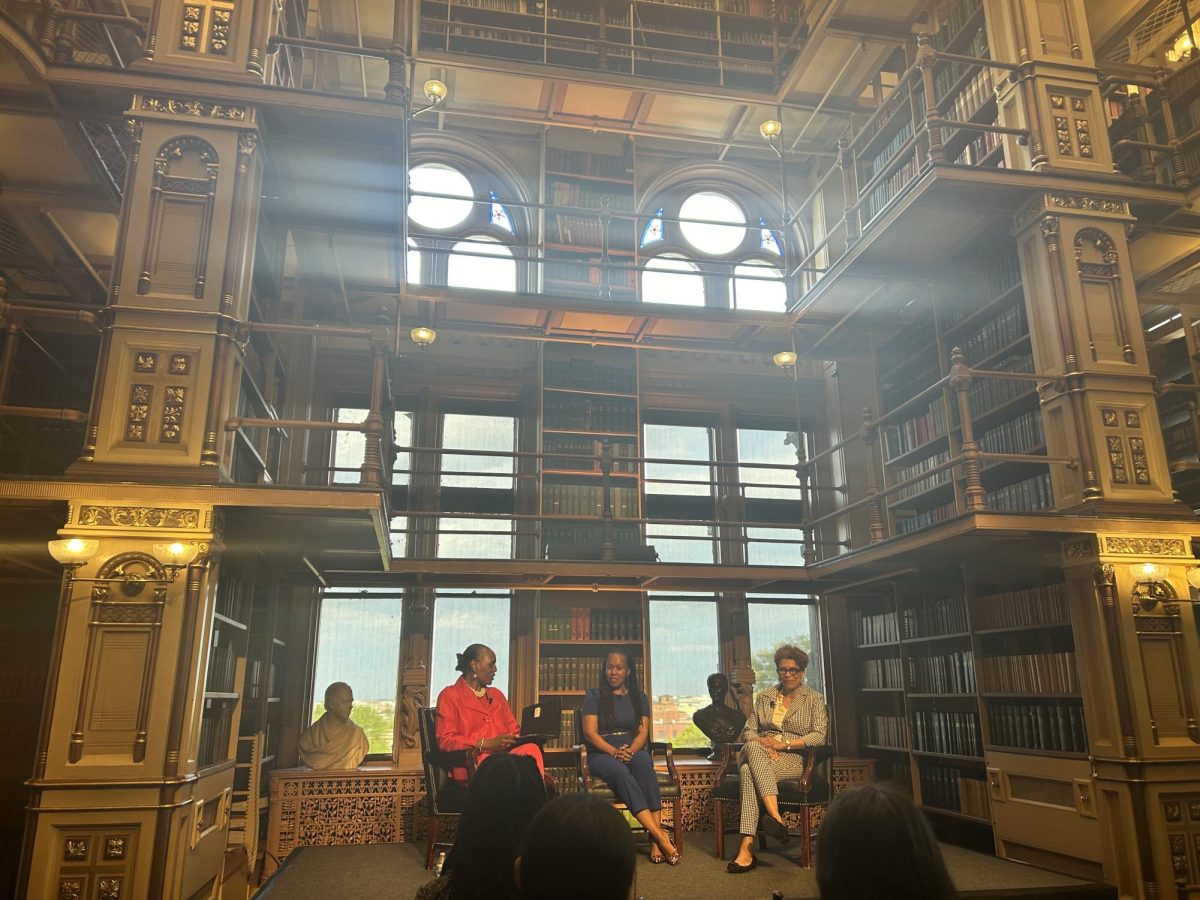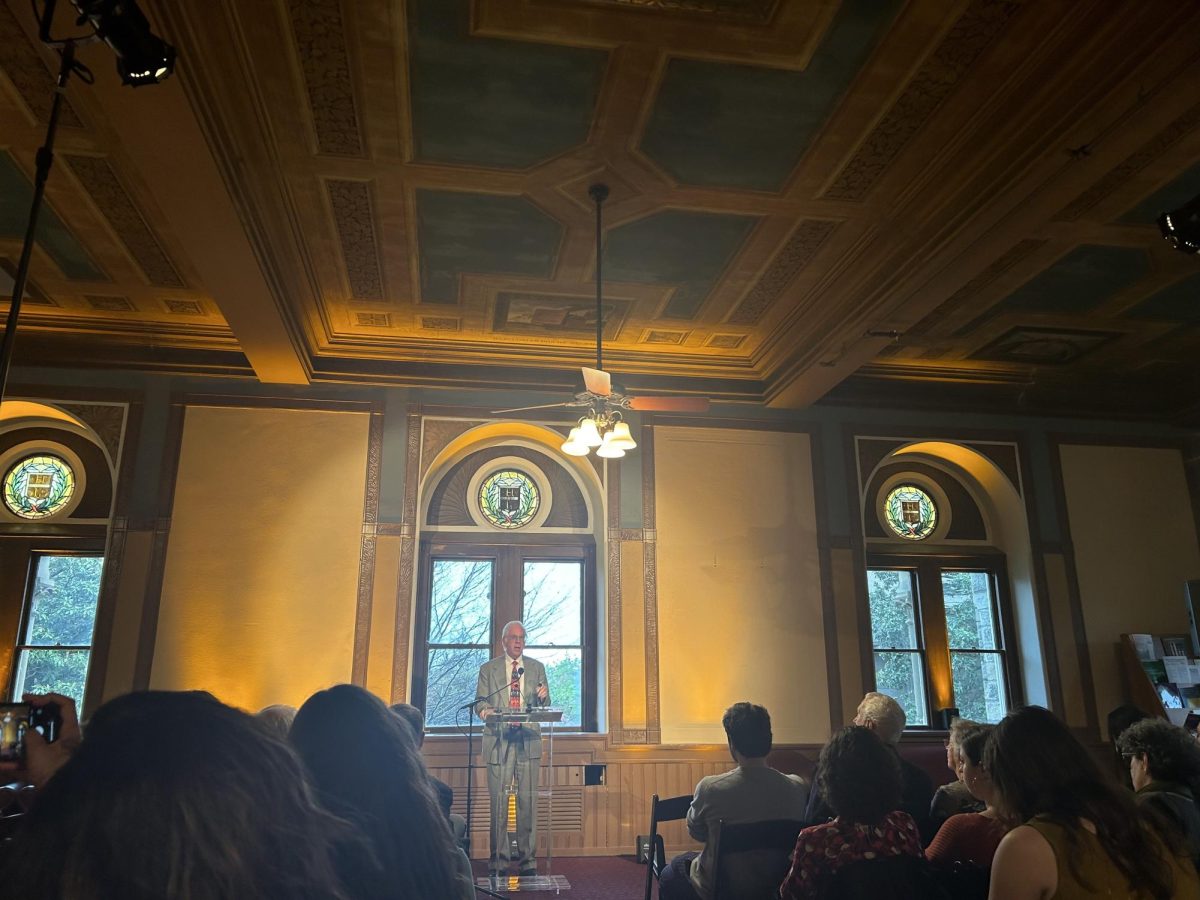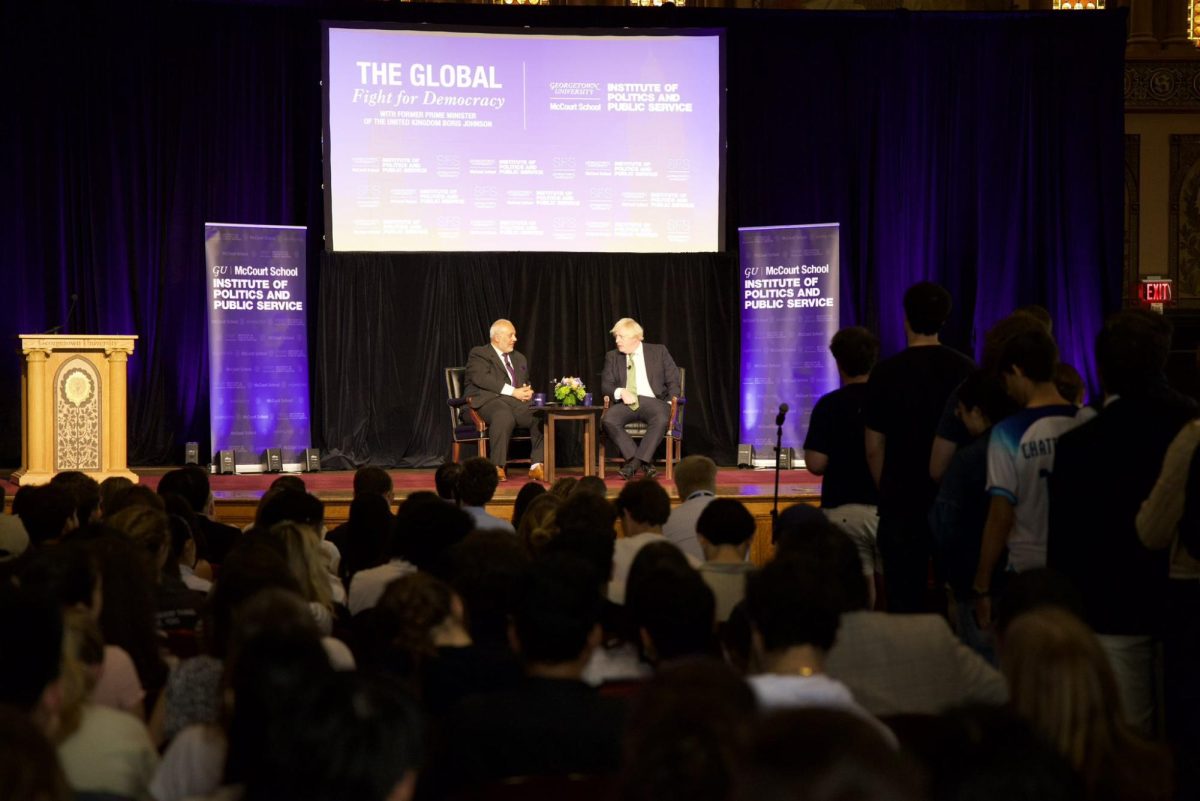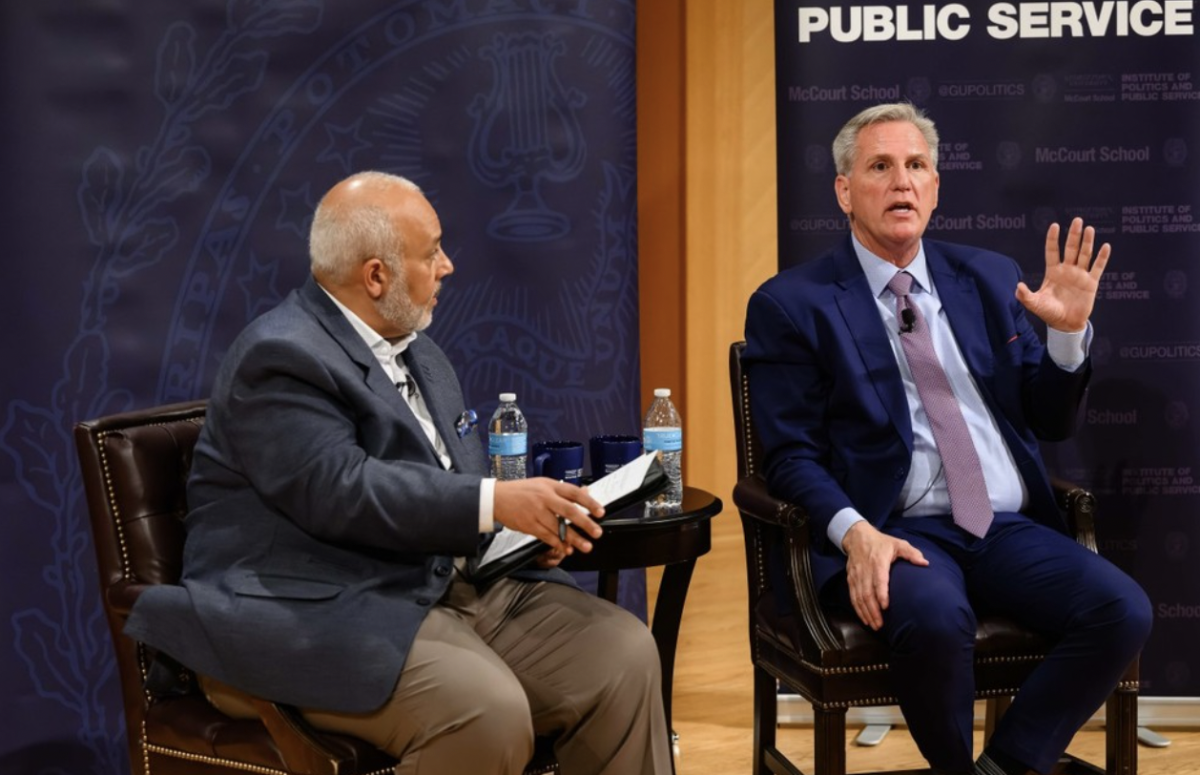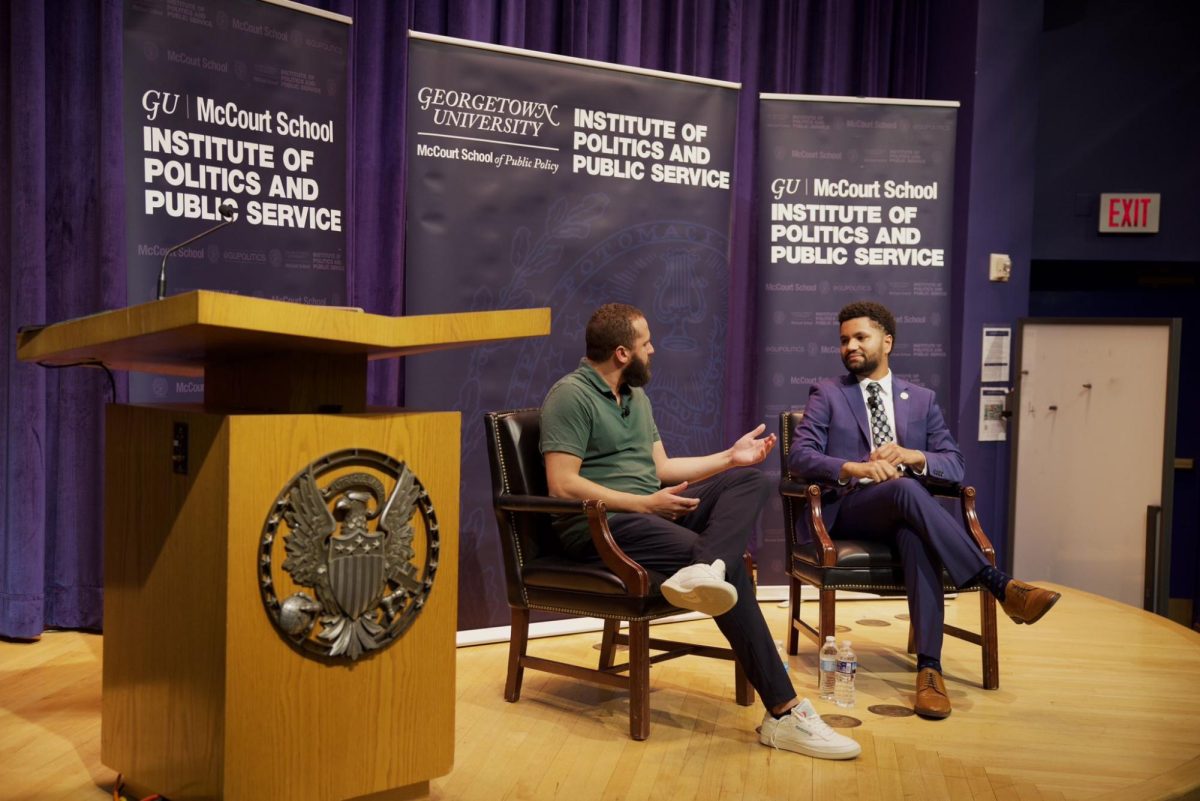An economist-turned-CEO spoke at a webinar on global demographic changes at Georgetown University Feb. 7.
Wolfgang Fengler, the CEO of World Data Lab, a company focused on creating large data models used to examine worldwide trends, discussed the factors currently impacting the geopolitical landscape with School of Continuing Studies (SCS) professors of the practice Frederic Lemieux and Shadi Abouzeid. The event, which the SCS hosted, was part of the Drivers of Geopolitical Insecurity Seminar Series, which spotlights different dynamics in economics, society and politics affecting conflict and peace.
Fengler said that in recent years, especially in 2023, the world has seen a number of influential changes in the geopolitical sphere, such as changing power dynamics, an aging population and the rise of the middle class.
“It’s always said that ‘we live in special times,’ and there is a way to think of demography with special times,” Fengler said at the event. “Especially if you think of the last twelve months, and some of the big shifts that have happened.”
World Data Lab, which primarily focuses on creating programs to model demographic changes, previously created the website population.io, which allows users to view a world population clock and lifespan predictions for every country of the world. The company also created worldpoverty.io, a website providing statistics about poverty around the world, stretching back to 2016.
Fengler, who previously served as a lead economist in finance for the World Bank, focusing on Eastern Europe and Central Asia, explained current demographic trends such as a rise in life expectancy and a decreased birth rate at the event.
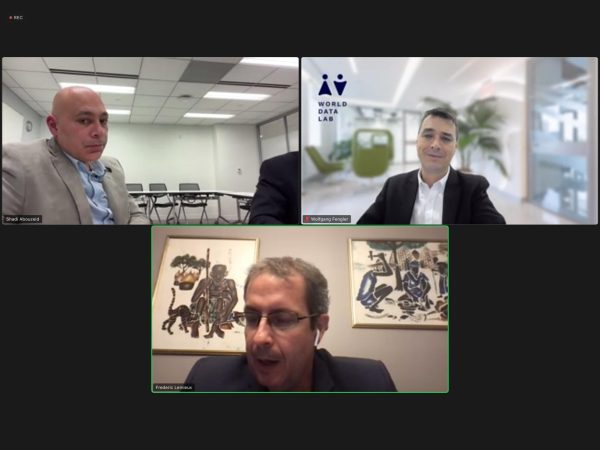
Fengler said these dynamics contribute to a general shift in geopolitical power towards the Global South, especially as China’s population has dropped as a consequence of its one-child policy.
“It’s clear that within your lifetime there will be a flattening and a shift towards not enough people,” Fengler said.
“When I was your age or younger, India was the poverty center of the world. People didn’t know about Africa, but about Indian poverty.”
“Today we talk about India’s strength, India’s nuclear strength, India’s geopolitical strength, but also about India’s economic strength,” he added.
Fengler said that the solution to recovering population growth is not focusing on increasing birth rates, but rather lowering child and young adult mortality rates and continuing to increase life expectancy.
“The number of children is not increasing, but if people live longer that means more people,” Fengler said. “Especially if child mortality is eliminated, which we are well underway towards in many countries, then every child that survives tends to live quite long. That itself tends to create a very new economic and political setup.”
Alongside mortality rates and an aging population, Fengler said that consumers have become generally wealthier, a phenomenon called middle-class dominance. He said that, with the exception of 2020, more people have continued to enter the middle class every year.
“If you think economically and in terms of prosperity, we are in the best world possible so far, which means half of the world is consumer class or wealthier,” Fengler said.
Fengler said global warming is a serious issue, but that the world must find a balance between lowering emissions and maintaining a healthy economy.
“We should not say, ‘Well, the Americans and the Europeans are fine,’ and do what we like,” Fengler said. “No, people should consume as much as we do; we just need to find a way to do it with less emissions.”
At the end of the event, Fengler addressed how the rise of artificial intelligence has led to a sense of fear among young people, comparing it to reactions to the advancement of computers among members of his generation.
“When we were younger, there was this whole concern that we shouldn’t have ATM machines because they replace labor in the banks. It’s actually complete nonsense. It actually creates more jobs,” Fengler said. “Because then people have more resources to spend on new things, and there’s new types of jobs that are being created and some of the jobs you’re planning to do haven’t existed in the past.”
“We just think much more dynamically, so there will be productivity enhancements. One can do new things for less, right?” he added.



